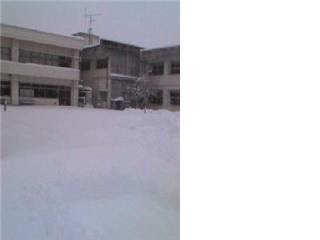
That was my car. Obviously getting out was a bit of a challenge.
Lately I've been studying French and German for no particular reason, which of course means learning vocabulary words, which is of course very tedious. It is made more frustrating by the fact that European languages are in general stupid and involve gender, which really serves no purpose whatsoever when you think about it. Japanese is great in that there is no gender, there's no real plural form to speak of, and pretty much everything is regular. From this perspective, one has to wonder why Germanic tribes/Romans were so dumb about how they decided to speak. Anyway...
As you are no doubt aware, French, like all Romance languages, to the best of my knowledge, uses two genders, masculine and feminine. German, not being a Romance language, uses a third gender, neuter, in addition to those. A friend mentioned to me that when he was learning French, there was an Italian guy in the class who sucked at everything except gender. Eventually he figured out that the reason was that in Italian, gender is extremely easy because the endings to the words indicate the gender, whereas in French, the rules are a little less precise. There happen to be a lot of cognates between French and Italian, and, furthermore, gender is preserved between the two, so if you speak Italian, it's really no thing to get gender in French.
Knowing that German and French are not in the same language family, I decided to do a little comparison of gender and see how well it stacked up. I took a couple sets of vocab words in both languages, and compared the genders of nouns to see what would happen. From a total of 94 words, in German 32 were masculine, 22 feminine, and 40 neuter. It seems like neuter is a bit more prevalent, but I'm not really sure how to do statistics on this, nor do I care to, and I'm guessing the sets of vocab that you choose (as in places, foods, jobs, etc.) might affect that. In French, of the 94 total words, 49 were masculine and 45 feminine, so probably just about the same, which comes as no real surprise.
Of the 32 masculine German words, when translated to French, 21 remained masculine, while 11 became feminine. That doesn't seem like a huge difference, but it's probably notable, and definitely good, if so, since gender-preserved words should be easier to remember.
Of the 22 feminine German words, 19 remained feminine after translation, and only 3 became masculine. That seems to me a very strong indication, and a good one, at that.
Of the 40 neuter words, 25 became masculine and 15 became feminine. One would expect if it were entirely random about 20 of each, which is probably not too far off here. So, maybe there is a slight preference for masculine nouns, but maybe not. I have no idea, really.
On a completely unrelated note, imagine the closed interval [0, 1]. That is to say, all the real numbers between 0 and 1, including the endpoints. Now, remove the middle third, that is, the open interval (1/3, 2/3), so that you are left with two disjoint closed intervals, [0, 1/3] and [2/3, 1]. Now, from those intervals, remove the middle thirds, giving you four disjoint closed intervals, [0, 1/9]; [2/9, 1/3]; [2/3, 7/9]; [8/9, 1]. Then repeat this process to infinity. What you get is a set called the Cantor set. It's pretty clear that the set isn't empty, and, in fact, is infinite. What's less clear is that it contains no intervals, and is in fact, nowhere dense. (That last bit is some topology stuff, but if you are still reading, you can just look this up.) What's crazy is that not only is it infinite, but it has the same cardinality as the original interval, which is the same as that of the real numbers. It's neat.





3 comments:
An altered look about the hills --
A Tyrian light the village fills --
A wider sunrise in the morn --
A deeper twilight on the lawn --
A print of a vermillion foot --
A purple finger on the slope --
A flippant fly upon the pane --
A spider at his trade again --
An added strut in Chanticleer --
A flower expected everywhere --
An axe shrill singing in the woods --
Fern odors on untravelled roads --
All this and more I cannot tell --
A furtive look you know as well --
And Nicodemus' Mystery
Receives its annual reply!
(boo Emily Dickinson)
Post a Comment